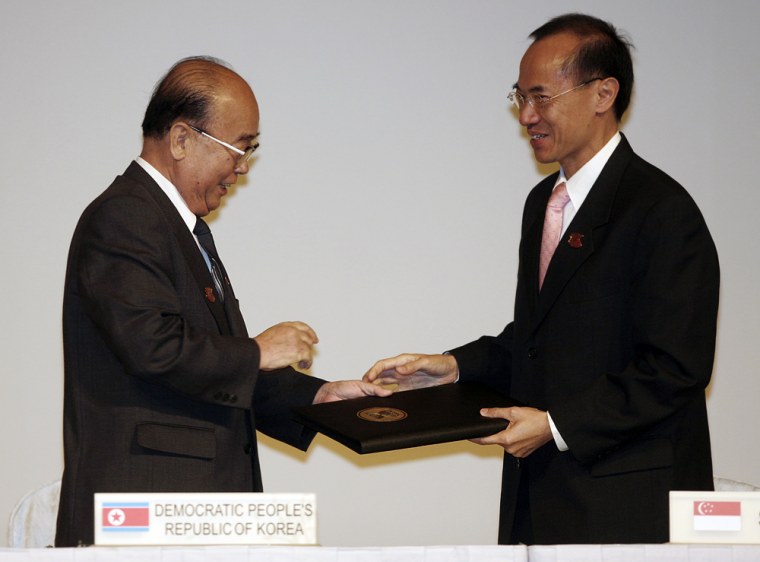North Korea's reclusive communist regime, long seen as a nuclear threat to the region, signed a nonaggression pact with Southeast Asian nations Thursday.
The largely symbolic move has no direct impact on the six-nation efforts to strip Pyongyang of its ability to produce nuclear weapons. However, it is a rare sign of reaching out to the international community by the highly secretive and isolationist country.
North Korea's Foreign Minister Pak Ui Chun signed the Treaty of Amity and Cooperation with the Association of the Southeast Asian Nations at a ceremony on the last day of the group's annual security conference.
The TAC, which came into force in 1976, requires signatories to renounce the use or threat of force and calls for the peaceful settlement of conflicts. Aside from the 10 ASEAN members, 11 other countries outside the regional bloc have signed up to the pact.
The signing comes amid moves by North Korea to dismantle its nuclear program in exchange for economic and political incentives, including normalization of ties with Japan and the United States.
Asia-Pacific powers also announced an ambitious plan to pool their military and civilian resources for disaster responses in a region beset by cyclones, earthquakes and floods.
The region has been devastated by major natural disasters over the past several years, including the 2004 Indian Ocean tsunami, and the deadly Myanmar cyclone and the large earthquake in China in May.
Foreign ministers of 26 countries and the European Union discussed a joint relief exercise to be held in 2009 and called for civilian-military coordination in future disaster relief.
However, no aid can be forced on any country. The statement noted that principle to put at ease countries that fear allowing foreign troops, even for relief work, would jeopardize their sovereignty.
Myanmar's ruling junta refused to allow foreign militaries, including U.S. troops, to provide help after Cyclone Nargis, and faced international criticism for its slow response. More than 84,000 people died.
Secretary of State Condoleezza Rice, who is attending the conference, slammed Myanmar for refusing the help at first when several countries including the United States were "sitting literally offshore" with ships loaded with aid.
